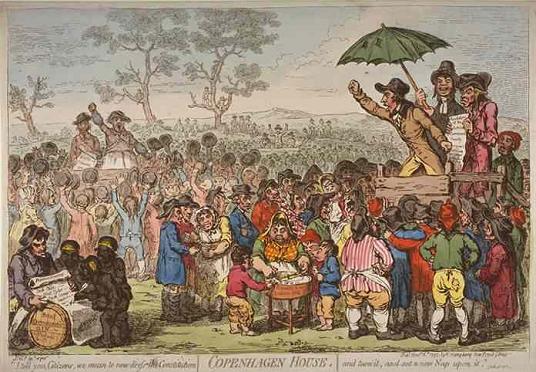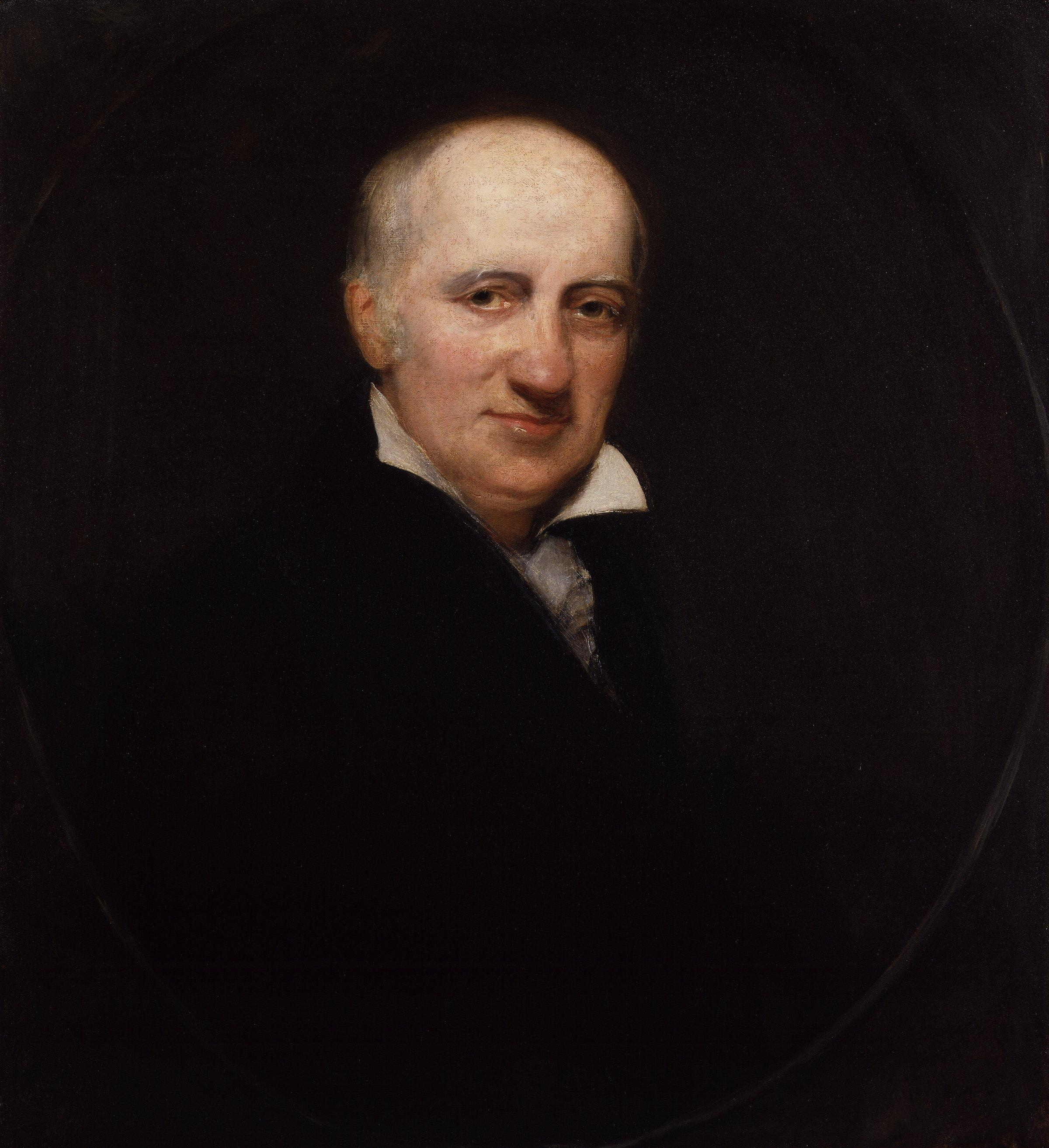|
To Godwin
"To Godwin" or "To William Godwin" was written by Samuel Taylor Coleridge and published in the 10 January 1795 ''Morning Chronicle'' as part of the '' Sonnets on Eminent Characters'' series. William Godwin was admired by Coleridge for his political beliefs. However, Coleridge did not support Godwin's atheistic views, which caused tension between the two. Although the poem praises Godwin, it invokes an argument that the two shared over theological matters. After the poem was written, the relationship between Coleridge and Godwin cooled and the poem was not reprinted. Background Coleridge's "To William Godwin, Author of ''Political Justice''" became the ninth sonnet in the series ''Sonnets on Eminent Characters'' in the 10 January 1795 ''Morning Chronicle''. Coleridge sent 6 lines of the poem to Robert Southey in a letter that read:Mays 2001 p. 165 "I have written one to Godwin—but the mediocrity of the eight first Lines is ''most miserably magazinish''! I have plucked therefore t ... [...More Info...] [...Related Items...] OR: [Wikipedia] [Google] [Baidu] |
William Godwin By Henry William Pickersgill
William is a masculine given name of Norman French origin.Hanks, Hardcastle and Hodges, ''Oxford Dictionary of First Names'', Oxford University Press, 2nd edition, , p. 276. It became very popular in the English language after the Norman conquest of England in 1066,All Things William"Meaning & Origin of the Name"/ref> and remained so throughout the Middle Ages and into the modern era. It is sometimes abbreviated "Wm." Shortened familiar versions in English include Will, Wills, Willy, Willie, Liam, Bill, and Billy. A common Irish form is Liam. Scottish diminutives include Wull, Willie or Wullie (as in Oor Wullie or the play ''Douglas''). Female forms are Willa, Willemina, Wilma and Wilhelmina. Etymology William is related to the German given name ''Wilhelm''. Both ultimately descend from Proto-Germanic ''*Wiljahelmaz'', with a direct cognate also in the Old Norse name ''Vilhjalmr'' and a West Germanic borrowing into Medieval Latin ''Willelmus''. The Proto-Germanic name is a ... [...More Info...] [...Related Items...] OR: [Wikipedia] [Google] [Baidu] |
Samuel Taylor Coleridge
Samuel Taylor Coleridge (; 21 October 177225 July 1834) was an English poet, literary critic, philosopher, and theologian who, with his friend William Wordsworth, was a founder of the Romantic Movement in England and a member of the Lake Poets. He also shared volumes and collaborated with Charles Lamb, Robert Southey, and Charles Lloyd. He wrote the poems ''The Rime of the Ancient Mariner'' and ''Kubla Khan'', as well as the major prose work ''Biographia Literaria''. His critical work, especially on William Shakespeare, was highly influential, and he helped introduce German idealist philosophy to English-speaking cultures. Coleridge coined many familiar words and phrases, including "suspension of disbelief". He had a major influence on Ralph Waldo Emerson and American transcendentalism. Throughout his adult life, Coleridge had crippling bouts of anxiety and depression; it has been speculated that he had bipolar disorder, which had not been defined during his lifetime.Jamis ... [...More Info...] [...Related Items...] OR: [Wikipedia] [Google] [Baidu] |
Sonnets On Eminent Characters
''Sonnets on Eminent Characters'' or ''Sonnets on Eminent Contemporaries'' is an 11-part sonnet series created by Samuel Taylor Coleridge and printed in the ''Morning Chronicle'' between 1 December 1794 and 31 January 1795. Although Coleridge promised to have at least 16 poems within the series, only one addition poem, "To Lord Stanhope", was published. The poems have been moderately received and emphasized for what they reveal about Coleridge's political and philosophical feelings during his early years. Within the poems, he praises 10 individuals that he treats as his heroes along and denounces two people that he feels have turned against their country and liberty. The sonnet series has been compared to John Milton's addressing of sonnets to his own contemporaries in both the types of individuals chosen and the style of composition. Background When "To Erskine" was published in the 1 December 1794 ''Morning Chronicle'', a note addressed to the editor was printed before it and re ... [...More Info...] [...Related Items...] OR: [Wikipedia] [Google] [Baidu] |
William Godwin
William Godwin (3 March 1756 – 7 April 1836) was an English journalist, political philosopher and novelist. He is considered one of the first exponents of utilitarianism and the first modern proponent of anarchism. Godwin is most famous for two books that he published within the space of a year: '' An Enquiry Concerning Political Justice'', an attack on political institutions, and ''Things as They Are; or, The Adventures of Caleb Williams'', an early mystery novel which attacks aristocratic privilege. Based on the success of both, Godwin featured prominently in the radical circles of London in the 1790s. He wrote prolifically in the genres of novels, history and demography throughout his life. In the conservative reaction to British radicalism, Godwin was attacked, in part because of his marriage to the feminist writer Mary Wollstonecraft in 1797 and his candid biography of her after her death from childbirth. Their daughter, later known as Mary Shelley, would go on to wri ... [...More Info...] [...Related Items...] OR: [Wikipedia] [Google] [Baidu] |
1794 Treason Trials
The 1794 Treason Trials, arranged by the administration of William Pitt, were intended to cripple the British radical movement of the 1790s. Over thirty radicals were arrested; three were tried for high treason: Thomas Hardy, John Horne Tooke and John Thelwall. In a repudiation of the government's policies, they were acquitted by three separate juries in November 1794 to public rejoicing. The treason trials were an extension of the sedition trials of 1792 and 1793 against parliamentary reformers in both England and Scotland. Historical context The historical backdrop to the Treason Trials is complex; it involves not only the British parliamentary reform efforts of the 1770s and 1780s but also the French Revolution. In the 1770s and 1780s, there was an effort among liberal-minded Members of Parliament to reform the British electoral system. A disproportionately small number of electors voted for MPs and many seats were bought. Christopher Wyvill and William Pitt the Younger arg ... [...More Info...] [...Related Items...] OR: [Wikipedia] [Google] [Baidu] |
Richard Porson
Richard Porson (25 December 1759 – 25 September 1808) was an English classical scholar. He was the discoverer of Porson's Law. The Greek typeface '' Porson'' was based on his handwriting. Early life Richard Porson was born at East Ruston, near North Walsham, Norfolk, the eldest son of Huggin Porson, parish clerk. His mother was the daughter of a shoemaker from the neighbouring village of Bacton. He was sent first to the Bacton village school, kept by John Woodrow, and then to that of Happisburgh, kept by Mr Summers, where his extraordinary powers of memory and aptitude for arithmetic were discovered. His literary skill was partly due to the efforts of Summers, who long afterwards stated that in fifty years of scholastic life he had never come across boys so clever as Porson and his two brothers. He was well grounded in Latin by Summers, remaining with him for three years. His father also took pains with his education, making him repeat at night the lessons he had learnt in t ... [...More Info...] [...Related Items...] OR: [Wikipedia] [Google] [Baidu] |
John Thelwall
John Thelwall (27 July 1764 – 17 February 1834) was a radical British orator, writer, political reformer, journalist, poet, elocutionist and speech therapist.Thelwall, John (1764-1834) english-heritage.org.uk. Retrieved 30 May 2019. Life  Thelwall was born in , London, but was descended from a Welsh family which had its seat at Plas y Ward,
Thelwall was born in , London, but was descended from a Welsh family which had its seat at Plas y Ward,
|
1795 Poems
Events January–June * January – Central England records its coldest ever month, in the CET records dating back to 1659. * January 14 – The University of North Carolina opens to students at Chapel Hill, becoming the first state university in the United States. * January 16 – War of the First Coalition: Flanders campaign: The French occupy Utrecht, Netherlands. * January 18 – Batavian Revolution in Amsterdam: William V, Prince of Orange, Stadtholder of the Dutch Republic (Republic of the Seven United Netherlands), flees the country. * January 19 – The Batavian Republic is proclaimed in Amsterdam, ending the Dutch Republic (Republic of the Seven United Netherlands). * January 20 – French troops enter Amsterdam. * January 23 – Flanders campaign: Capture of the Dutch fleet at Den Helder: The Dutch fleet, frozen in Zuiderzee, is captured by the French 8th Hussars. * February 7 – The Eleventh Amendment to the United States ... [...More Info...] [...Related Items...] OR: [Wikipedia] [Google] [Baidu] |
British Poems
British may refer to: Peoples, culture, and language * British people, nationals or natives of the United Kingdom, British Overseas Territories, and Crown Dependencies. ** Britishness, the British identity and common culture * British English, the English language as spoken and written in the United Kingdom or, more broadly, throughout the British Isles * Celtic Britons, an ancient ethno-linguistic group * Brittonic languages, a branch of the Insular Celtic language family (formerly called British) ** Common Brittonic, an ancient language Other uses *''Brit(ish)'', a 2018 memoir by Afua Hirsch *People or things associated with: ** Great Britain, an island ** United Kingdom, a sovereign state ** Kingdom of Great Britain (1707–1800) ** United Kingdom of Great Britain and Ireland (1801–1922) See also * Terminology of the British Isles * Alternative names for the British * English (other) * Britannic (other) * British Isles * Brit (other) * Briton (d ... [...More Info...] [...Related Items...] OR: [Wikipedia] [Google] [Baidu] |

%2C_Portrait_miniature%2C1809.jpg)

.jpg)

